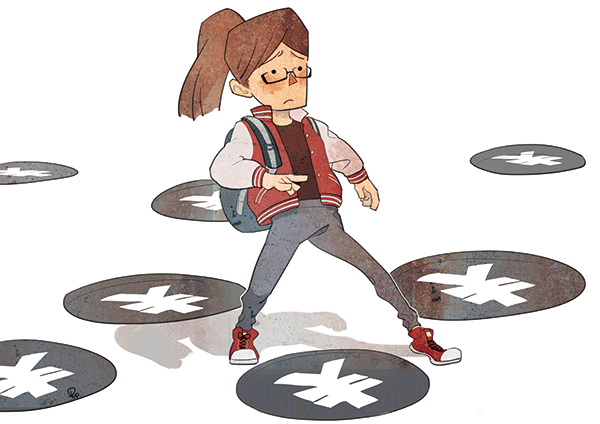Protect students from online lending firms
Despite strengthened control of online lending platforms that target students, college students continue to fall prey to online loan sharks, which points to the failure of regulatory authorities to combat such scams.
In March, a college student in Central China's Henan province committed suicide for failure to repay the money he had borrowed through a number of online lending platforms. The first amount he borrowed was not high, but given the high interest rate, commission charges and surcharges for delayed payment, he continued borrowing to repay his initial, unending debt.
In April, the Ministry of Education and the Chinese Banking Regulatory Commission issued a document, requiring colleges to establish a monitoring and warning system to protect students from the schemes of irregular online lending companies.
In August, the CBRC started to strengthen regulation of online lending companies targeting students and some platforms stopped loaning money to students.
However, another college student, in Nanning, South China's Guangxi Zhuang autonomous region, committed suicide last month for not being able to repay his accumulated loan of 1.6 million yuan ($233,000) that he had borrowed through peer-to-peer lending platforms (companies that directly match lenders with borrowers).
Last week, some media reports said a female sophomore in East China's Anhui province used her nude photographs as collateral to borrow 500,000 yuan from various peer-to-peer companies. And after she could not repay the loans, those companies posted her nude photos online and repeatedly called and intimidated her family. Her father even tried to sell his home to repay her debt.
According to media reports, many university students use their own nude photos as collateral to borrow money from online lenders, which shows that part of the online lending market remains unregulated. Therefore, regulatory forces should renew their efforts to cleanse the market.
Online lending companies should be more strictly regulated not only because they have covertly lent money to college students, but also because many of them have used irregular and illegal means to make profits. For example, some reports say many online lending companies charge interest rates that are many times the normal rate of banks. In other words, they have engaged in illegal financial operation, or usury, which is a crime.
China allows non-banking private lending among individuals, but the interest rate should not be higher than four times the benchmark lending rate of banks. Chinese banks' benchmark one-year lending rate today is slightly more than 4 percent, but media reports say the rates charged by online platforms are often more than 30 percent a year. Such a high interest rate, plus various other charges and fees, ultimately become an unbearable financial burden for reckless students who borrow without due consideration.
Another problem with China's online lending platforms is their low threshold for loans for college students. In many cases, applicants only need to provide their ID and contact details of their families to get a loan approved. By offering an easy application procedure, those online lending companies essentially coax students to borrow, a practice that is in stark contrast to the prudent operation of regular banks. And after the students run out of means to get the money to repay the loans, the companies come down on them like mafia, which also often breaches the law.
Obviously, such lending activities are illegal, and the regulatory authorities have failed to act promptly and forcefully, which has led to more tragedies.
Students who have recklessly borrowed through those platforms certainly should be responsible for their actions. But regulators should not sit idle to allow the situation to worsen. If the banking and public security departments had more closely monitored the industry and severely punished those involved in usury and other illegal activities after the Henan student committed suicide in March, the Guangxi student might still be living and the female sophomore would not have used her nude photos as collateral to take a loan.
The author is a senior writer with China Daily. xinzhiming@chinadaily.com.cn

























